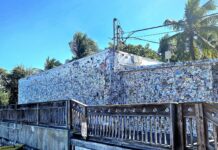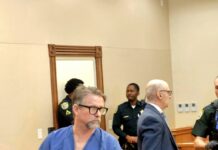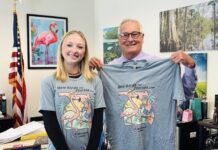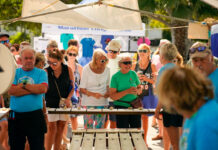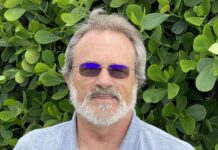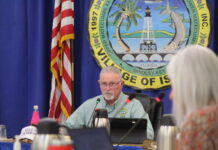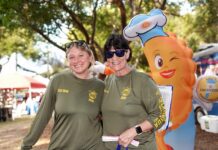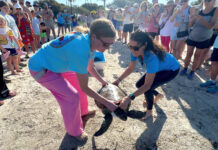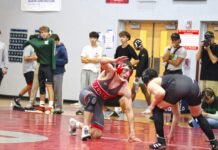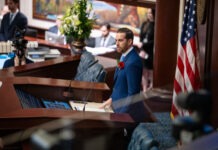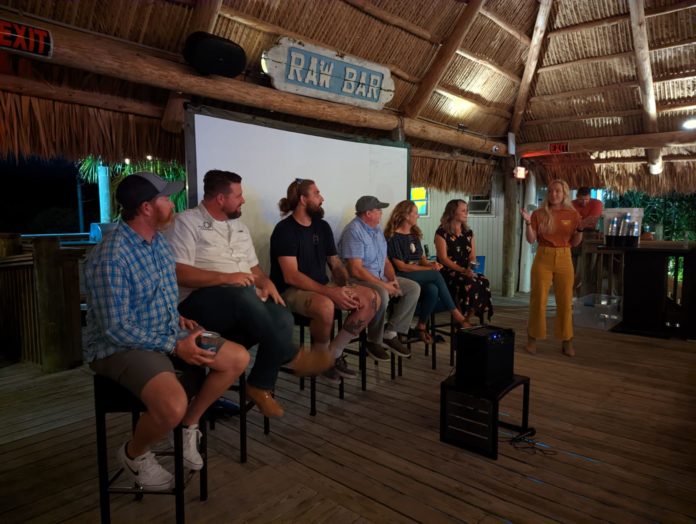
Sereia Films, a local production company focused on seafood education, partnered with the Florida Keys chapter of the Surfrider Foundation to host a lively night dedicated to sustainable seafood. The goal was to explore what exactly that means and to better understand what goes into our local seafood.
Globally, the seafood industry was estimated to be worth a whopping $270.3 billion in 2022 and is estimated to continue growing at a steady pace. However, with increased pollution, poor water quality, overfishing and warming and acidifying oceans, environmentalists say the bounty from our ocean is not boundless.
So, what is actually sustainable?
In places like the Keys, we know that our environment and our economy are inextricably tied. So, we must ensure that the seafood we catch is done in a way that is truly sustainable for our waters – that it is coming from sustainable sources and is caught using sustainable methods that will allow our ocean to continue to thrive.
“For Sereia Films, making sustainable seafood choices means being a curious and informed consumer,” said panel moderator and Sereia founder Sarah Curry. “It also means being a consumer that values the work that goes into all parts of getting seafood on our plates – from harvesting, growing, processing, transportation and cooking that seafood.”
Before the panel, Curry showed two episodes of her upcoming PBS series showing how to get sustainable seafood “from tide to table.” Consumer tips included choosing locally-caught or -grown seafood, eating what’s in season and diversifying the species that end up on your plate. “Eating lower on the food chain is great,” Curry said, “and getting to know where your seafood is caught or farmed and how it’s caught or farmed is key.”
“Not only is fishing the backbone of our economy here, so is seafood and many ocean livelihoods in the Keys rely on it,” said Surfrider Florida Keys Chair Whitney Wemett. “It’s so important for people to understand what goes into their food and who’s bringing food to their table.
“Take Gary Nichols, panelist and owner of Nichols Seafood in Conch Key. He reminded us that even on days when it’s blowing and you think no one’s going out, that he and his family are – because their livelihoods depend on it,” Wemett added. During the panel, Nichols also lamented the many commercial traps that get caught on boat props each year and dragged away. These losses cost Keys fishing families, staff and small businesses. “That was a big takeaway for me personally during the panel,” Wemett said.
Audience member Austin Armstrong lamented how some fishermen throw back fish carcasses with tons of meat on them. He asked the panel, “How do we change the culture to not waste so much – to use more of the fish?”
Panelist and chef at Islamorada’s Chef Michael’s Christian Ledwith answered. He said, “My dad (chef Michael Ledwith) would get so upset about this. He showed me how to scrape the carcasses, and we’d make these tasty little tacos.” Ledwith’s memory echoed the message from one of Curry’s films, wherein a Miami chef also scraped the bones on a fish, using that meat and fresh vegetables from his garden to make ceviche.
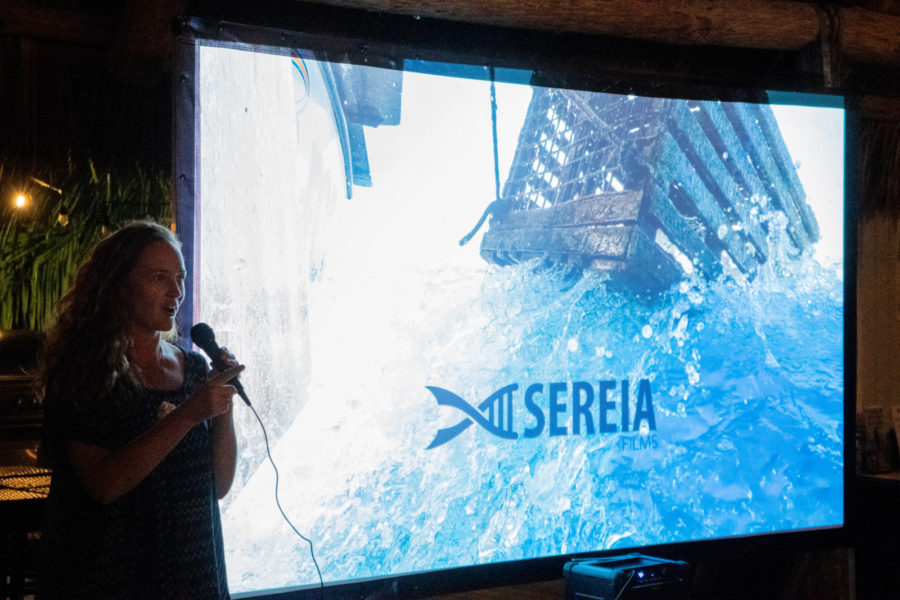
The panelists also touched on policy changes that encourage more sustainability within the seafood industry. For example, panelist and Florida Keys Fishing Guides Association’s Capt. Steve Friedman described how he encourages clients to release some of their catch and not to take too much. For those looking to “fill their coolers,” Friedman says, “I’m not your guide.” Moreover, he and other guides follow a voluntary moratorium by practicing catch and release within Everglades National Park. He continued, “I’ve never lost a charter from releasing fish. In fact, I’ve maybe gained some. We need to educate people why this is better in the long run.”
The panel emphasized that what’s happening with water management in Everglades National Park is critical to the future of Florida Keys fisheries. Panelist and Ocean Conservancy’s director of Florida conservation J.P. Brooker said, “Anyone who’s stepped foot in the Keys knows we’re suffering from depleted freshwater – and depleted fisheries. People don’t necessarily make the connection between a drop of water originating in Kissimmee, getting sent east and west from Okeechobee instead of going south as it traditionally would have and how that affects the health of the reef here in the Keys and the fish that live there.”
He added, “The issues are apolitical in nature. It doesn’t matter if you’re Democratic or Republican; we need to act now. People should listen to Gary (Nichols, from the panel), think about where seafood comes from, think about how compromised your water is, think about that when you go to the ballot box.”
Despite the diversity of panelists and their roles within the seafood industry, they all agreed that clean water and a thriving ocean were worth fighting for, Wemett said. They all just do it a little differently, so bringing them together for an event like this allows for new, important conversations to take place, added Curry. Wemett concluded, “Hopefully, this is how change begins – with community, curiosity and knowledge sharing.”
